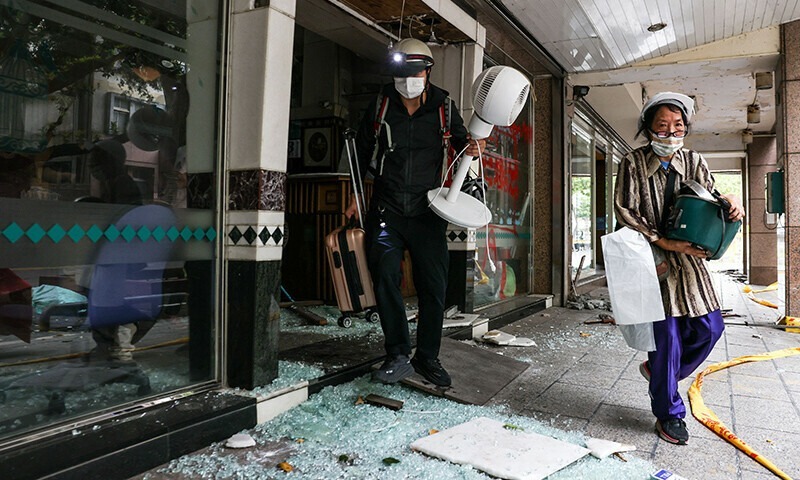As the number of fatalities from this week’s earthquake increased to 12, and some of the stranded were brought to safety, rescuers in Taiwan had to contend with the possibility of more landslides and rockfalls while searching for the twelve persons who were still missing on Friday.
Following Wednesday’s magnitude 7.2 earthquake that rocked the mostly rural, thinly populated eastern county of Hualien and left hundreds stranded in a national park as debris crashed down hillsides, closing off highways, searchers found two more bodies.
Rescuers reported that some 400 people who had been cut off in a posh hotel in the Taroko Gorge national park were safe despite the area being rocked by nearly 50 earthquakes that night, some of which could be felt as far away as Taipei. Helicopters were used to transport the injured and deliver supplies.
“The biggest challenges right now are landslides and rockfalls, which are made more likely by rain,” stated Su Yu-ming, the head of a search team assisting with the rescue.
“We cannot confirm the number of days required for the search and rescue operations due to the unpredictable nature of these factors.”
The fire service in Taiwan reported the discovery of two remains in the highlands, but they did not immediately provide an updated death toll. It said that eighteen people were missing, three of them were foreign nationals of Canadian and Australian descent.
It removed an Indian national from the list of those missing, stating that their inclusion was an error, without providing any details.
Now, most of the fifty hotel employees who were stranded on the road leading to the national park are safe.
Following his rescue, hotel security manager David Chen, 63, remarked, “I am lucky to survive.” “When the earthquake initially struck, we were in complete terror. Because of the earthquake, we assumed it was everywhere. Am I correct?
He noted that when the group left, rocks were still falling down neighboring slopes. “With the rescue team leading the way, we had to maneuver through the spaces between the falling rocks.”
After learning that her son had survived, Chen’s 85-year-old mother sobbed with relief. The family had been wondering for some time whether he had.
Chen Lan-chih, the mother, said, “I was happy when he returned.” “Last night, I couldn’t eat anything and didn’t sleep at all.”
The earthquake struck the day before Taiwan’s traditional tomb-sweeping festival, which is a long weekend off during which residents tidy up family tombs.
Many more travel to tourist destinations, such as Hualien, which is renowned for its untamed beauty, but many reservations have been canceled as a result of the earthquake, according to several businesses.
Hostel owner Aga Syu stated, “This is a disaster actually for us because no matter (whether) hotel, hostel, restaurants (everything) really depends on tourism,” stressing that the safety of her visitors was her top priority.
“Hopefully, this won’t ruin their perception of Hualien.”
Taiwan is earthquake-prone because it is located close to the meeting point of two tectonic plates. A 2016 earthquake in the region’s south claimed more than 100 lives, while a 1999 earthquake with a magnitude of 7.3 claimed more than 2,000 lives.








